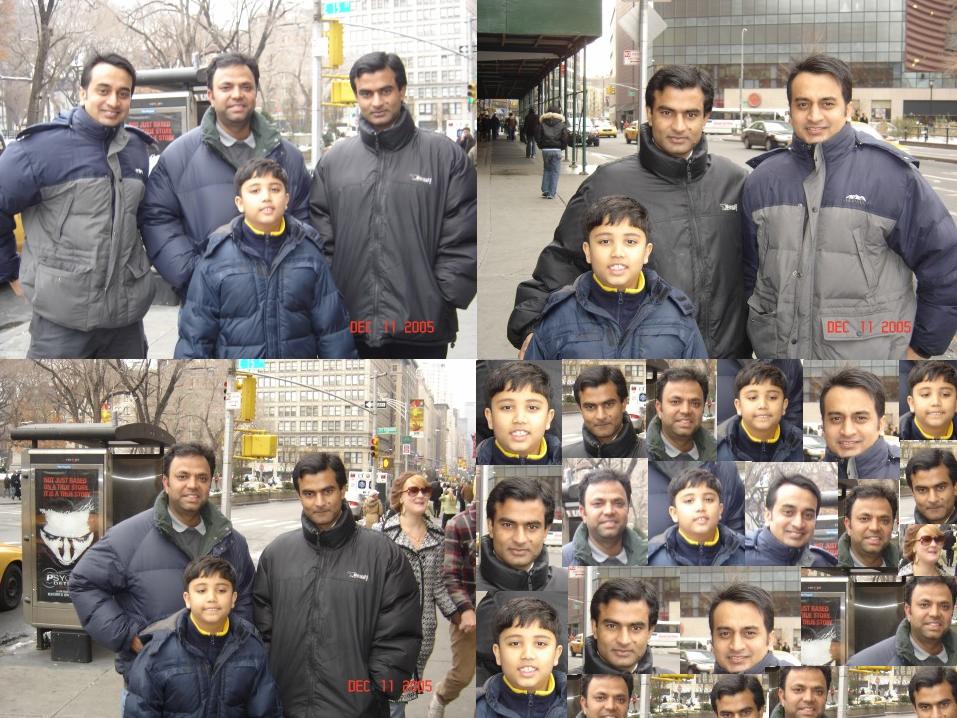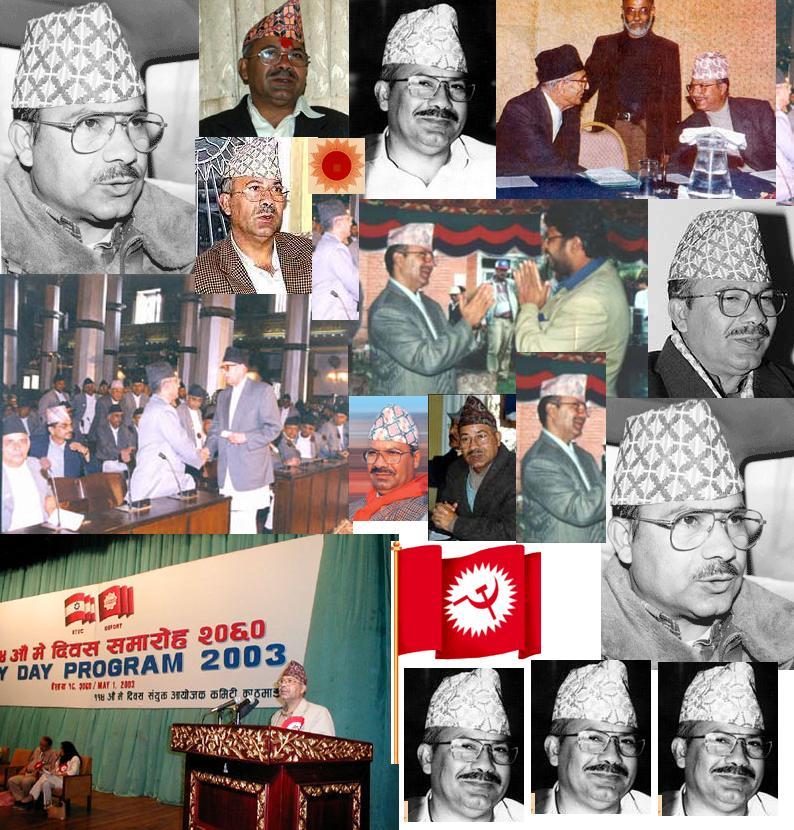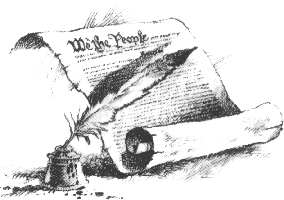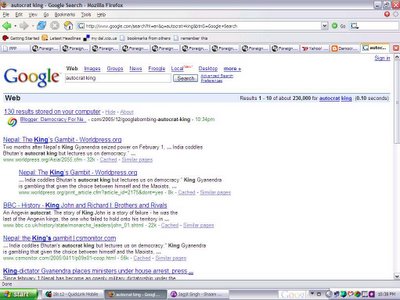
It has been extremely unreasonable of the regime to not have reciprocated the Maoist ceasefire, but then if it did act reasonable, it would not be a feudal monarchy, would it? The Maoists should not now punish the people and the democracy movement for the obstinacy of the royalist regime.
If they now resort to violence, they punish the democracy movement. The democracy movement is on. It has definite momentum. Rally after rally are proving that. February 8 is good news. All we have to do is go to every home in the 50 plus municipalities, and convinve the people to stay back home. A total failure on the part of the regime on February 8 will deal it a fatal blow, I think.
February 8 has given us focus, it has energized our bases, and it has made a rapid bipolarization possible. The chips are falling in place.
Instead of bullets, the Maoists should go on a massive offensive with an out and out propaganda war and target the foot soldiers of the RNA, and the low paid officers of the police force. They should use the airwaves, they should engage in some massive pamphleteering. They should wake these people up so they are more prone to switch their sides to the cause of democracy.
These foot soldiers are not royalists. They just went in for the monthly salary. They need to be educated on democratic values just like the rest of the population. The Maoists should learn from Lenin, and try to win them over by raising their class consciousness. The Maoists have their work cut out for them. The work involves words, not bullets.
Dr. Baburam Bhattarai is the ultimate wordsmith. I have devoured his writings this past year, scant that they have been. He writes crisp. His party needs him now more than ever before, now when victory is so near, you can almost smell it.
Threat of violence also falls within the purview of a war of words. The Maoists have threatened to march their armed cadres into the Kathmandu valley itself should the royal regime get down to a military crackdown on peaceful protestors. That message has to be spread far and wide. That is propaganda work. The threat will be its most successful if it never gets carried out.
But if they now go back to their old ways and resort to violence, that will be a serious jolt to the democracy movement. Why would they want that? Especially when victory feels so near.
Their ceasefire has not been the ceasefire of an armed group that is tired and near defeat. The ceasefire has been the work of a smart, agile leadership that made some sound political analysis, and threw the regime off balance through a brilliant military move. An already globally isolated regime became even more isolated. What looked difficult before became real: an alliance between the Maoists and the seven party alliance got forged. The UN has been happy with the Maoists and openly critical of the regime that refuses to talk sense. It is hard for any global power to demonize a group that even the UN has been singing praises of.
These have been major achievements. The initiative has been seized from the royalists.
But if the Maoists were to now resort to violence, that will be a major step backward in every way. I don't believe they will. People who made the brilliant move of the ceasefire will likely not go dumb overnight and lose their sound political acumen. I don't believe they will.
But I feel the need to write these words of caution regardless.
The seven party alliance has already decided to engage in some major pamphleteering. The Maoists should do the same. They should work to build a nationwide network so as to make it possible to smuggle their hard hitting pamphlets into the army ranks and the police. If they could only reach 30,000 foot soldiers of the RNA, that would be an achievement.
The Maoists have been good at being able to track down the families of the RNA foot soldiers in the villages. Maybe they should do that and make a democratic, non-coercive attempt to convince those family members. Words might get passed on.
These foot soldiers are people who have been willing to fight and die for a measly monthly salary. It should not be hard to work on them and convince them to live for their country.
I am not exactly suggesting a mass uprising within the army, a mutiny, or anything like that. I am suggesting if the propaganda work is done well, when it is finally crunch time, and the regime is near collapse, these foot soldiers will come to a point where they will refuse orders. A breakdown in the RNA chain of command might be possible.
The same might apply to the police.
I would urge the student organizations who most often engage in street clashes with the police to change their tactics. Instead of confronting the police, go to the police line, and stop. Engage the front line police officers in small talk. Let the police line be a peaceful dam. And build the crowd behind it. Do peaceful, creative sloganeering. Win them over. Don't pelt them with stones. Soon these police officers will be taking orders from the democratic, interim government. It is not like they are on the other side.
More so than the army and the police, it really is about the people. I am extremely pleased with the programs of the eight parties to foil the February 8 polls.
To sum it up:
- Maoists, extend the ceasefire if you can.
- If you can't, then keep your armed cadres on "active defense."
- Don't start a new round of violence. The democracy movement can not afford it.
- Instead fight a war of words. Wage a major propaganda war to win over the RNA foot soldiers.
- Visit homes to convince people to not show up for the February 8 polls.
In The NewsAnnan urges Nepal government, leftist rebels to reach truce People's Daily Online, China
Annan presses Nepal to match rebel cease-fire Reuters AlertNet
Annan urges truce between Nepal’s Government and Communist ... UN News Centre
Annan calls on Nepalese rebels to extend cease-fire+ TMCnet
Mukherjee meets Nepal, Koirala Kathmandu Post, Nepal
Mukherjee and Millard meet Nepal Kantipur Online
UN should exert pressure on Nepal: Nepal Kantipur Online
Nepal army starts 'biggest' Maoist hunt NewKerala.com
Political parties mobilise workers to actively boyott polls in ... Doordarshan
Number of killings and bombings dropped significantly in Nepal Pravda, Russia
Abuses drop during Maoist truce BBC News
Communist rebels say they won’t kill during Nepal’s municipal ... Khaleej Times
Nepal rebels assure UN over poll threat Reuters AlertNet
Pro-democracy Lawyers, Professionals Flay Pro-King Appointments in ... NewsLine Nepal, Nepal
SC appointments draw criticism; NBA calls meeting to discuss ... Nepalnews.com
NBA calls meet against SC appointments Kathmandu Post
Rights Activists Criticise SC Judges' Appointments Himalayan Times
Nepal: Seven-party alliance asks people to boycott polls Press Trust of India, India
We Will Not Fall Prey to Maoist or King’s Ambush: Nepal Leaders NewsLine Nepal
Journalists stage nationwide protest against media curb NepalNews
King should relinquish power: Ranabhat26 people killed during ceasefire: NHRCDemocracy must to achieve MDGs: ExpertsSC appointments draw criticism; NBA calls meeting to discuss appointments








